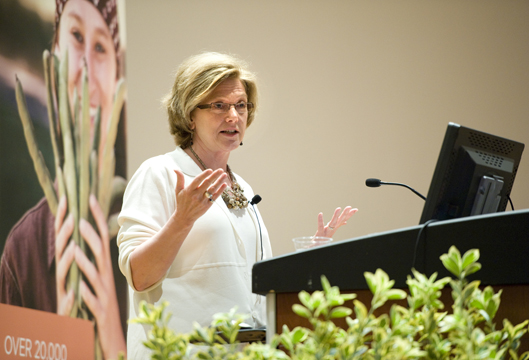The glass ceiling was a phrase first coined in an article in The Wall Street Journal, to describe what professional women confront—an invisible, unspoken rule that says, you can only go so far. Men continue to dominate corporate management and corporate boards that direct a company’s mission, goals and bottom line, as well as its spirit and character.
Now a California state senator, Hannah-Beth Jackson (D-Santa Barbara) is the author of a bill intended “to blow up the glass ceiling,” she says, adding that company boards need “a woman’s perspective.” Ken Martin at FOXBusiness reports that a majority in the California Senate agrees with her. They just passed this game-changer, sending it halfway to the finish line. The bill would require at least one woman on company boards by the end of 2019, with a schedule for increasing numbers. By 2021, a six-member board would seat three women members.
OMG. Equal numbers? Opposed by many business groups, of course, amendments are expected. Some San Francisco corporations already have met the standard, according to this source, noting Airbnb just expanded its board to include one added woman, and the female Pixar CFO, Ann Mather, now serves on two boards. Wowee.
Is that progress? Only if you believe ambitious women will be Angels. Right now the selling point made by Catalyst, a women’s organization examining women’s status in business, is that boards with more women do better financially. That’s not a bad thing, but in itself would not necessarily make for change down where the majority of women still work. Kim Elsesser at Forbes cites a study that actually claims boards with women paid their CEOs 15 percent more—hardly the group most in need of pay raises.
Work policies need to change to include greater diversity and pay equity, more flexible work schedules, and ample family leave time for everyone. For that we’ll need reshaping of corporate structure and cultures from the bottom, as well as from the top, aMarjorie Kelly argues in Owning Our Future. An economy now waged as competitive war, measured solely by dollars, can be changed into one that wages life. But a living economy needn’t “blow up” a thing—nor are richer CEOs and profits for a few its best yardstick.
Nevertheless, Jackson is shaking norms that need to be woke! You go, girl!







